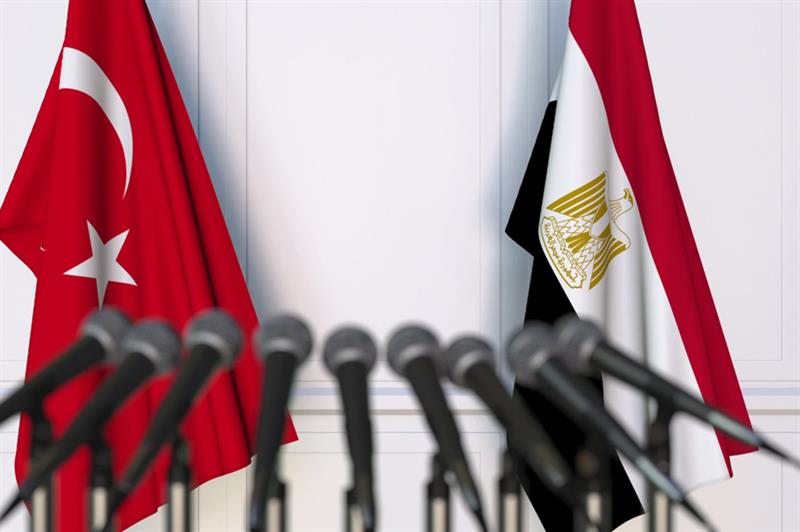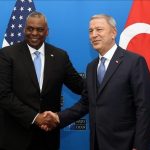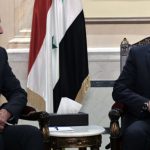Turkish President Recep Tayyip Erdogan was quoted by Turkey’s Anadolu news agency earlier this week as saying that while Ankara maintains contacts with Egypt at the level of ministers, he hopes to upgrade ties “because the people of Egypt are our brothers.”
But that is unlikely to happen any time soon, said a diplomat speaking on condition of anonymity.
Attitudes to improving bilateral relations in Cairo and Ankara are clearly not the same. “Cairo wants the differences between Egypt and Turkey to be settled before taking steps to improve relations, while Ankara is seeking a partial resolution of some differences, leaving others for later,” he said.
Professor of political science Tarek Fahmi sees Erdogan’s statement as part of the “zero problems policy” it is adopting towards its regional neighbours, and points out that it is not his first attempt to reconcile with Egypt.
What the Turkish government needs to do, he says, is match words with deeds. While on a bilateral level Ankara has responded to some of Cairo’s demands, not least by stopping members of the Muslim Brotherhood (MB) from voicing anti-Egyptian government rhetoric on Turkish TV, on the regional level solving differences between the two capitals is more challenging. Issues such as the Libyan, Iraqi, and Syrian files “need a long and extended review by Ankara and that is not going to be easy,” he told Al-Ahram Weekly.
The East Mediterranean Gas Forum (EMFG), an energy alliance formed by Egypt, Greece, Cyprus and Israel, is also a problem for Ankara which is alarmed by Egypt’s strengthening relations with Greece and Cyprus and the emergence of the forum.
Despite the outstanding problems, both Erdogan and the Turkish Foreign Minister Mevlut Cavusoglu have insisted in statements that progress towards normalising ties with Egypt is continuing. In an interview last month Erdogan said there are no major obstacles preventing the normalisation of ties, and that efforts in this direction were proceeding in tandem with Ankara’s efforts to develop its relations with Saudi Arabia and the UAE.
Hopes for a boost in relations gained strength late last year when, following improvements in Ankara’s relations with the UAE and the signing a number of strategic agreements, Erdogan said Turkey was now looking to strengthen ties with Egypt and Israel.
In the quest for better relations with Cairo exploratory meetings were held in May and September. During the two rounds of talks, Cairo asked Ankara to stop interfering in the domestic affairs of Arab states, particularly Libya and Syria, halt its media campaigns against Egypt and stop granting Turkish nationality to Egyptians living in Turkey.
Following the second round of talks, a joint statement was issued by the Egyptian and Turkish foreign ministries saying both sides had agreed to continue the exploratory talks.
Cairo and Ankara remain at odds over developments in Libya and over maritime boundaries and gas rights in the Eastern Mediterranean. Relations between the two countries deteriorated following the removal of Muslim Brotherhood member Mohamed Morsi as Egypt’s president in 2013. Erdogan was one of Morsi’s most vocal supports.
Within months, Cairo expelled the Turkish ambassador from Cairo in reaction to Ankara’s repeated criticisms of Egypt. Turkey responded by declaring the Egyptian ambassador persona non grata.
By: Doaa El-Bey
*A version of this article appears in print in the 25 August, 2022 edition of Al-Ahram Weekly.
Source: Al-Ahram



